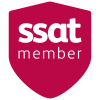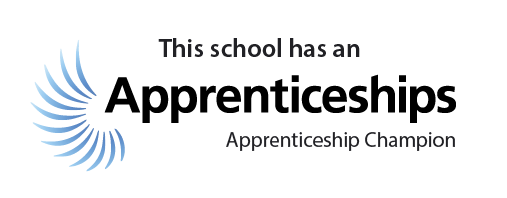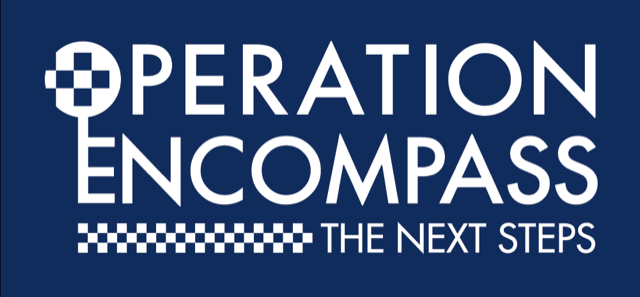
The ICT, Computing and Business Department
The department consists of 4 staff
- Lisa Fitzpatrick – Head of Department
- Andrew Purdon – Head of Computing
- Paul Williams
- Sarah Proctor – Teacher of Business
Business and Computing
We aim to promote the Computing Curriculum both as a means to ensure a better understanding of ICT and Computing in the wider world and to inspire students to use, or be involved with ICT in the future. We are strong advocates of the importance of Computing to students and for the last few years have provided pupils with a curriculum that includes Scratch and Kodu. We see coding as an essential skill and involve every pupil across the school in some coding activity.
KS3 Computing
Pupils have one lesson a week and from September 2013 will be following the new National Curriculum Programme of Study. Topics will include
· Using at least 2 programming languages to solve problems
· undertake creative projects that involve selecting, using, and combining multiple applications, to achieve challenging goals,
· create, reuse, revise and repurpose digital information and content with attention to design, intellectual property and audience.
KS4 Computing / ICT
Pupils can either opt for OCR Computing GCSE or WJEC ICT GCSE
Computing GCSE
This course enables pupils to develop their understanding of current and emerging technologies and how they work in a range of contexts. They will use programming to solve problems, applying creative and technical skills to reach the most suitable decision.
Pupils sit a written paper worth 40% and complete 2 pieces of Controlled Assessment, both worth 30%.
Homework is set on a regular basis throughout the course, taking a variety of forms e.g. note taking, collecting data, set tasks, research assignments. When students are completing their Controlled Assessment assignments they will be expected to spend at least 1-2 hours per week researching the topic. The teacher will monitor the progress of the assignment at regular intervals.
All Controlled Assessment is marked and assessed according to the criteria laid down by the examining boards. Classwork and homework exercises are marked according to the School policy with graded pieces receiving A to G for attainment.
WJEC ICT GCSE
This course offers a unique opportunity in the curriculum for candidates to identify and solve real problems by designing information and communication systems in a wide range of contexts relating to the students’ personal interests. ICT develops candidates' interdisciplinary skills and their capacity for imaginative, innovative thinking, creativity and independence. Topics covered include:
- Data and Validation
- Home entertainment
- Emerging Technologies
- Use of Technology in Businesses
- Desktop environment
- Using software
- Security
This GCSE is assessed by
- Unit 1 Understanding ICT Exam 20% (the exam covers the functional elements of ICT in a home and school context).
- Unit 2 Solving Problems with ICT Controlled Assessment 30% (this is a portfolio of work which shows candidates' attainment in obtaining and interpreting different types of information; using, developing and communicating information to meet the purpose of their studies and presenting the results of their work).
- Unit 3 ICT in Organisations Exam 20% (this looks at the how ICT is used in a business context)
- Unit 4 Developing Multimedia Solutions Controlled Assessment 30%
Homework is set on a regular basis throughout the course, taking a variety of forms e.g. note taking, collecting data, set tasks, research assignments. All portfolio work is marked and assessed according to the criteria laid down by the examining boards. Classwork and homework exercises are marked according to the School policy.
KS4 Business GCSE
Pupils can opt to study GCSE Business Studies (EdExcel) consisting of 75% exam and 25% Controlled Assessment. Students will gain a detailed understanding of the aims of businesses; the different types of businesses, and how businesses operate. The focus is on small businesses and the entrepreneurial skills required to run them. You will develop an understanding of business finance and a good idea of how to manage your own finances. You’ll investigate what managers look for in workers and how they recruit the right ones.
Units studied
· Spotting a Business Opportunity – Adding value, innovation, franchises
· Showing Enterprise – Thinking creatively, calculated risks
· Ideas in Practice – Costs, revenues and profit, cash flow, objectives
· Effective Start-up – Liability, legal issues, recruitment and selection
· Economic Context – Interest rates, exchange rates
· Marketing
· Financial Management
· People Management
· The Wider World – economic issues
Homework is set on a regular basis throughout the course, taking a variety of forms e.g. note taking, collecting data, set tasks, research assignments. When students are completing their Controlled Assessment assignments they will be expected to spend at least 1-2 hours per week researching the topic. The teacher will monitor the progress of the assignment at regular intervals.
All Controlled Assessment is marked and assessed according to the criteria laid down by the examining boards. Classwork and homework exercises are marked according to the School policy with graded pieces receiving A to G for attainment.
Curriculum Plan - Business Studies
Business Studies
Computing
.png)







